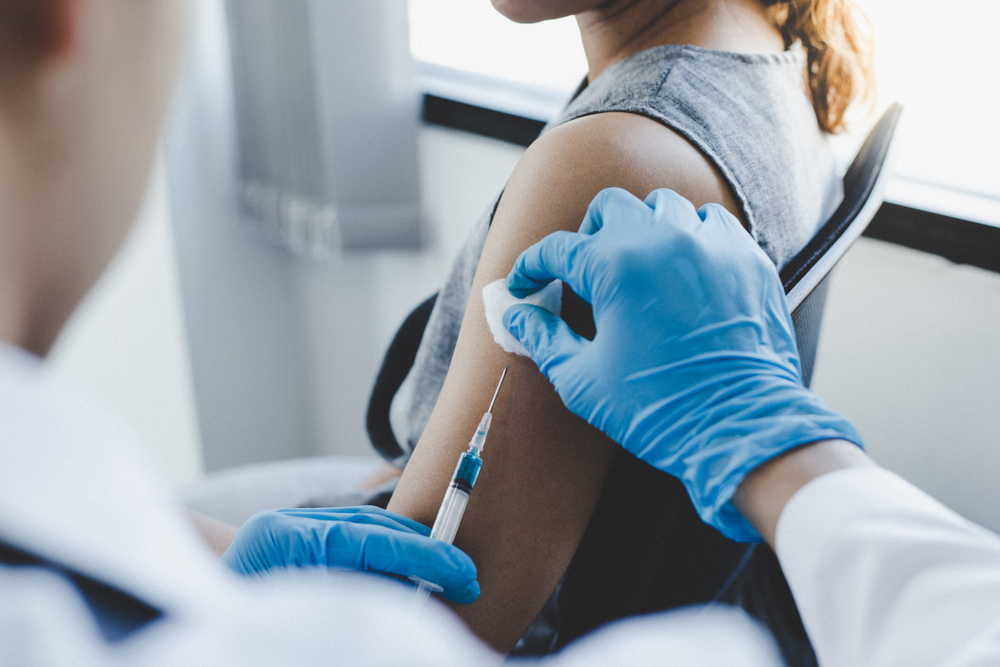New study finds no cervical cancer cases in HPV-vaccinated women

Study proves efficacy of HPV vaccination at preventing cervical cancer, as UK Health Security Agency statistics show that uptake has still not returned to pre-pandemic levels.
Public Health Scotland announced this week that a new study has found no cases of cervical cancer in young women vaccinated as part of the HPV vaccination programme. The news comes as the UK marks Cervical Cancer Prevention Week 2024 and MPs commit to tackling inequality in the uptake of cervical screening and HPV vaccination.
The HPV vaccination programme was introduced in 2008 and aimed to vaccinate young women against HPV to prevent the development of cervical cancer, on the advice of the Joint Committee on Vaccination and Immunisation (JCVI).
The human papillomavirus (HPV) is a type of sexually transmitted virus, of which there are more than 100 strains. Many individuals will be infected with HPV over the course of their lifetime and in most cases the infection is harmless and clears on its own. However, persistent infection with high-risk strains of HPV can occur and lead to the development of cervical cancer.
Cervical cancer is the 4th most common cause of cancer in women worldwide, and HPV is responsible for almost all cases. Infection with the HPV virus is also linked to an increased risk of mouth, throat, and urogenital cancers in both men and women.
From 2019, the JCVI recommended that 12-13-year-old males, as well as females, should be offered the HPV vaccine to protect against these non-cervical cancers. Further, in 2023 the dosing schedule of the programme also changed to one dose only, as it was shown to be just as effective as two doses at protecting from HPV infection.
However, the most recent UK Health Security Agency statistics on HPV vaccination coverage published on 23 January this year demonstrate that although vaccination uptake has increased since the previous year, it has still not returned to pre-pandemic levels. Further effort is required to bolster vaccination programmes in schools to ensure young people across the UK are getting sufficient coverage.
“It is possible to make cervical cancer a rare disease”
NHS England announced in November last year that it aims to eliminate cervical cancer by 2040. To meet this ambition, it must ensure as many people as possible are vaccinated against HPV, as well as come forward for cervical screening. In addition to the vaccination programme in schools, NHS England plan to improve access to online vaccination appointments and offer vaccinations in more convenient settings such as libraries, community centres and local leisure facilities.
The Scottish study published in the Journal of the National Cancer Institute also concludes that “women from more deprived areas benefit more from vaccination than those from less deprived areas.” It found that cervical cancer incidence was significantly higher in women from the most deprived areas in Scotland, and that incidence substantially decreased for those who had three doses of the vaccine. This demonstrates the role that vaccination can play in the reduction of health inequality, emphasising the importance of ensuring vaccination efforts cover deprived areas.
Dr Kirsty Roy, a consultant in health protection at Public Health Scotland and co-author of the study, said: “It shows how effective the HPV vaccine is as there have been no cervical cancer cases to-date in fully vaccinated women who were given their first dose at age 12-13 years. Vaccination against HPV is shown to be effective in preventing cervical cancer, and along with regular screening for early detection and treatment, it is possible to make cervical cancer a rare disease.”
Dr Vanessa Saliba, UKHSA consultant epidemiologist, said: “The HPV vaccination programme is one of the most successful in the world with millions of doses given since it started in 2008. It has dramatically lowered the rates of cervical cancer and harmful infections in both women and men – preventing many cancers and saving lives.”
Jenni Minto, a Scottish Minister for Public Health, said: “The HPV vaccine programme is having a huge impact on preventing these cancers for those who have been vaccinated. Vaccination and screening remain the most effective ways of preventing and detecting cervical cancer and I would encourage those eligible to come forward to have the vaccine or attend screening appointments.”
Public Policy Projects’ (PPP) 2024 Cancer Care Programme will be investigating how to implement innovation in cancer care, as well as discussing how to overcome inequalities in access to care like screening and vaccination. Working with a range of cancer care stakeholders, including ICB and ICS leadership, cancer alliances, diagnostic and imaging networks, trusts, health innovation networks and charities, PPP will use examples, such as the work leading to Scotland’s exciting results, to produce policy recommendations aimed at improving cancer care for all across the UK.
For more information about PPP’s Cancer Care Programme in 2024 please contact:
Willy Morris, Senior Partnerships Manager, willy.morris@pppinsight.com.
Samantha Semmeling, Policy Analyst, samantha.semmeling@publicpolicyprojects.com.